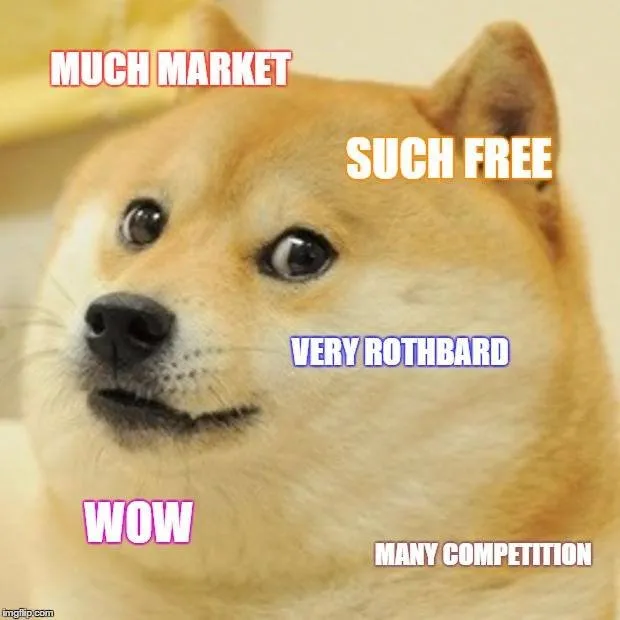
From Free-Market-memes on FaceBook
In the first chapter, Dr. Bylund makes some excellent points about the powers of exchange. I thought the idea of the ripple effect was as simple as it was complicated. The fact that money has a practically infinite amount of paths it can follow is vast and wide. This means that the flow of money is VERY unpredictable. This is what Bylund highlights through his apple example, although simple (probably for the best) it shows how one market influence can affect other aspects of the free market. Then Bylund brings up Bastiat's window scenario. Bylund's explanation is clear and to the point. I liked how he explained why in theory the breaking of the window was "good" for the growth of the market. However, he takes a step back and explains that it should be taken with a grain of salt, because, there was a better route than the breaking of the window. He uses the real hard analogy of war to prove his point that destruction does not foster economic growth, just the recreation of the past market status. That is his argument, the unseen if you will. The other paths and better options for money are ultimately what is important, not immediate results. However, the government can influence these events and it has an overreaching effect. I think Bylund is right in his thinking that regulation breeds change for all industries. Change in the market is a butterfly effect, the market itself is an interconnecting web of supply and demand, buying and selling, business effects business. Regulation is usually one-sided and hyperspecific. I think regulation is good only for the consumer and Bylund agrees. Businesses have to conform to what the consumer wants, that's what makes them money. The same applies to the government, businesses comply with the law because that's what keeps them in business. Why have regulation if consumers ultimately control what businesses do? Then there is prohibition. I think prohibition is useless unless the core goal is to stop a malicious product from entering the economy. Bylund says that prohibition is an even greater butterfly effect because now all aspects of the business s are moved elsewhere or permanently removed. Government meddling does cause change, but maybe not the best, it separates the more successful from the least successful even more. It just does more harm than good. An unregulated economy can still get out of hand. Expectations keep increasing and this leads to markets failing in favor of newer better markets. However, I think that just calls for better innovations and better entrepreneurs to solve these issues. The pure market is truly inefficient, Bylund even admits this. The point of an unregulated economy. But who cares if it's efficient or not. What matters is that each trade benefits both parties, that each exchange produces a value. That is the true value of freedom, the ability to naturally make things perfect, that is unseen. The unrealized is the harmfulness of regulation.